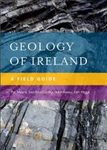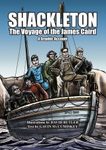![Captain Francis Crozier Captain Francis Crozier]()
Click to have a closer look
About this book
Related titles
About this book
Francis Crozier, the stalwart Irish adventurer from Banbridge, County Down, was a major figure in the epic quests of 19th century Polar exploration – navigating the North West Passage, reaching the North Pole and mapping Antarctica. His remarkable story, which is now told for the first time, embraces six daring voyages of discovery to the world's most hostile regions and extraordinary feats of endurance, tragedy and failed romance. And the last taboo – cannibalism.
The ground-breaking expeditions of Crozier with legendary explorers like Parry, Ross and Franklin lifted the veil from the frozen Arctic and Antarctic wastes and were crucial to the exploits of Amundsen, Scott and Shackleton in the 20th century. The four-year expedition to the Antarctic by Crozier and Ross was the last great journey of discovery made under sail and the icy Cape Crozier was immortalised in The Worst Journey in the World. Crozier's personal tragedy was an unhappy love affair with Franklin's beguiling niece which drove him back to the ice for one last time and the leading role in exploration's greatest disaster – Franklin's ill-fated North West Passage expedition in 1845. Desperate to please, Crozier sailed as second-in-command on her uncle's catastrophic venture to solve the 300-years old mystery of the North West Passage. All 129 men vanished in the ice. Scraps of information retrieved from the ice show that Crozier took command when their ships were crushed by the ice and expedition was on the brink of disaster.
For several years Crozier led a courageous battle to survive, trying to lead his men to safety by finding a path out of the icy labyrinth. Crozier's desperate struggle to survive may have finally unlocked the secrets of the North West Passage. According to legend, Crozier was the last man to die – the last man standing. But Captain Francis Crozier never received full recognition for his great feats and he drifted into obscurity to become another of exploration's unsung heroes. With the aid of important new research and a modern perspective on historic events, it is now possible to piece together the first comprehensive biography of the man from County Down who was at the centre of Polar exploration in the pioneering age of the 19th century.
Customer Reviews




































